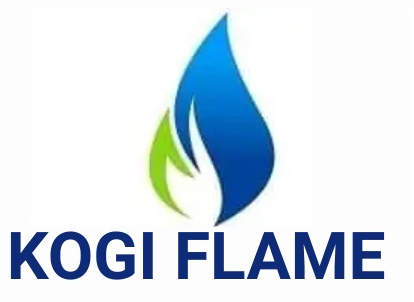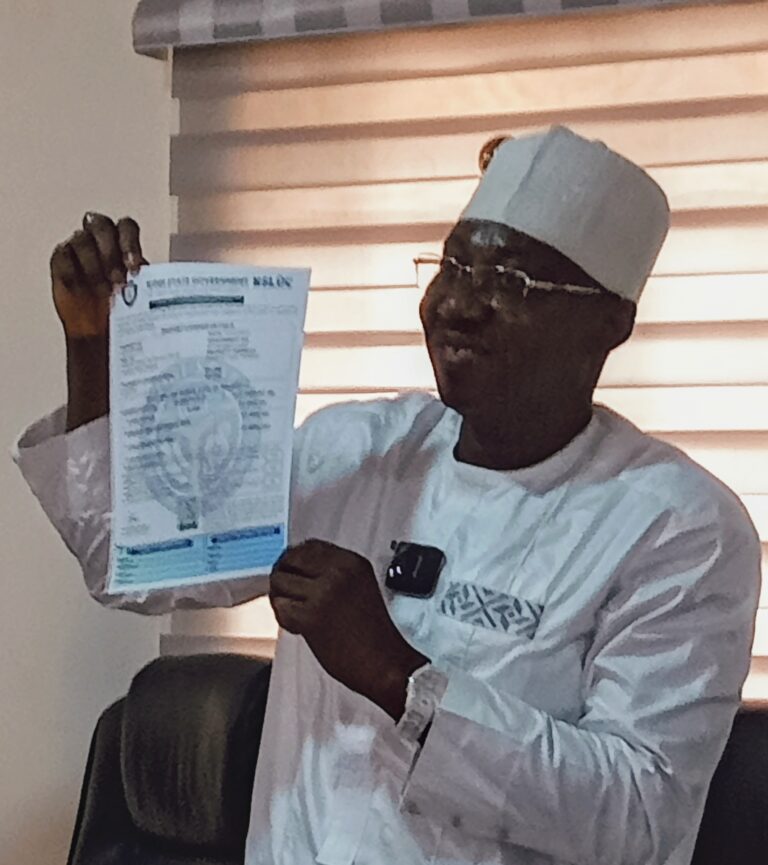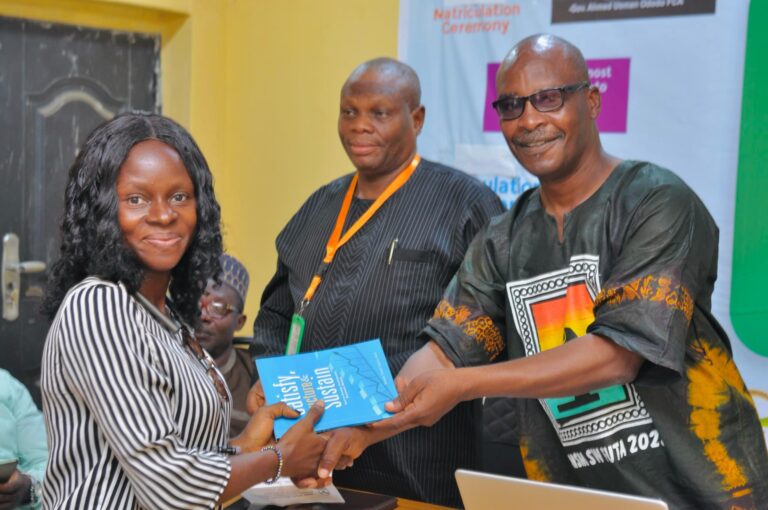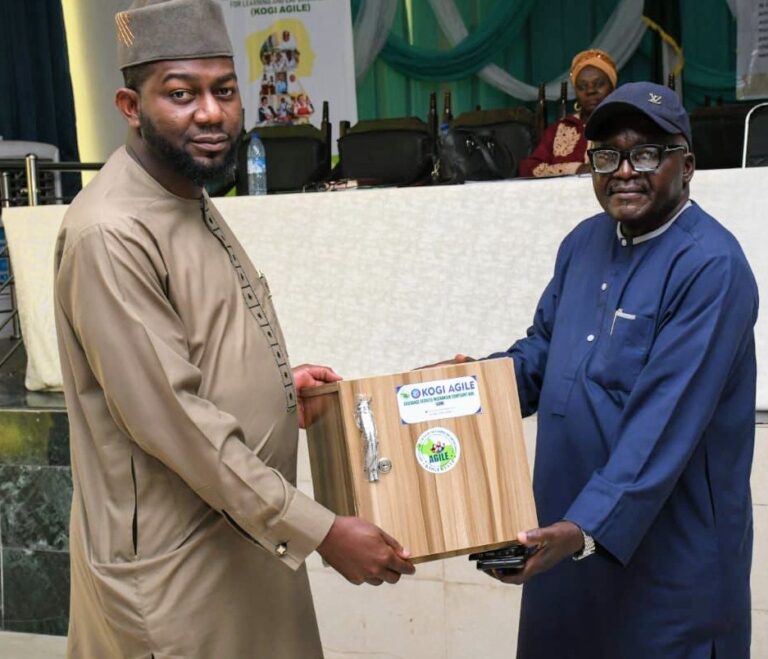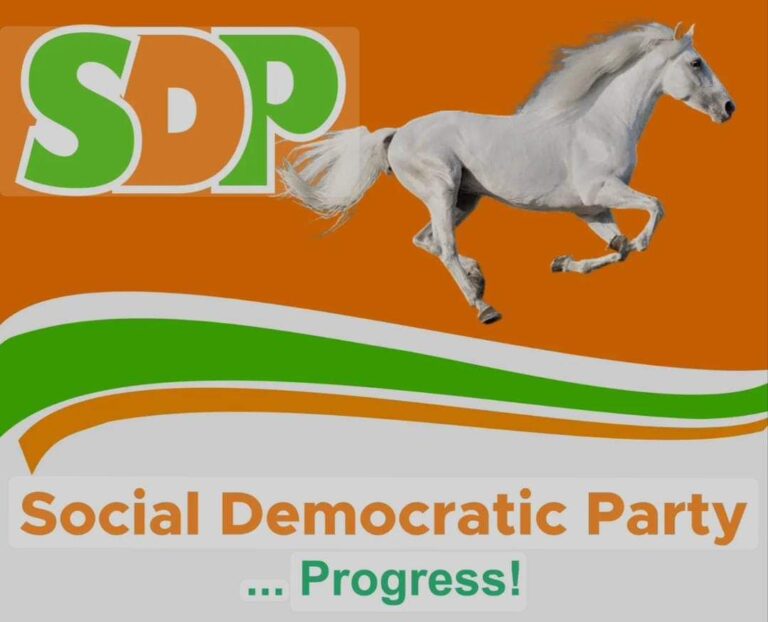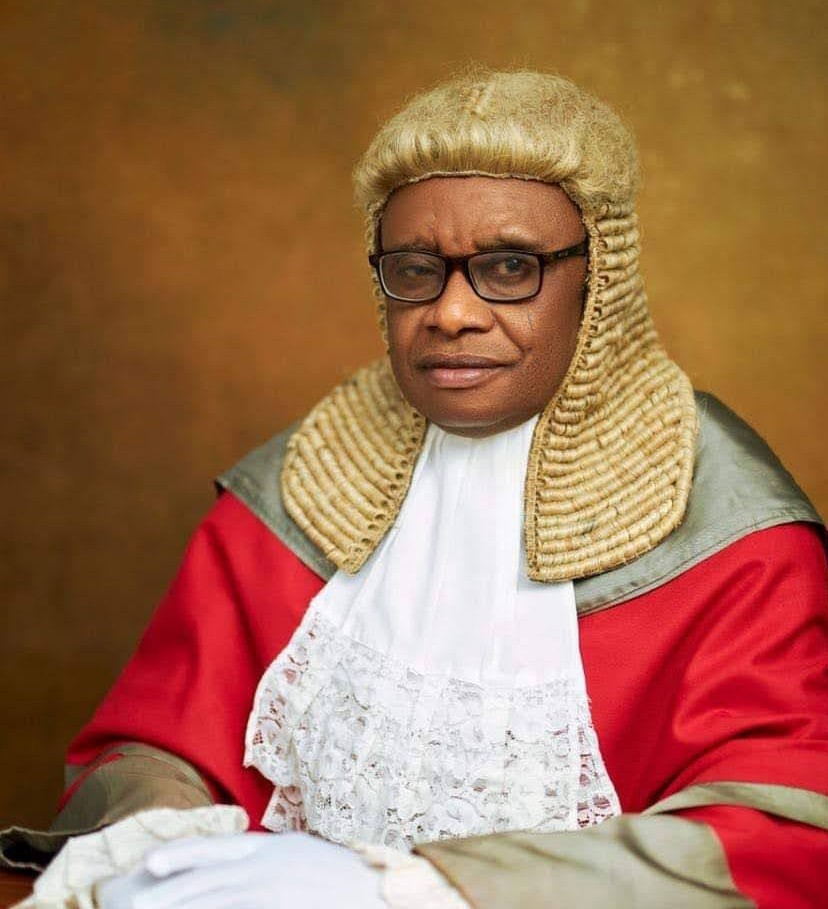


Kogiflame
The Acting Chief Judge of Kogi State, Honourable Justice Josiah Joe Majebi called on the Economic and Financial Crimes Commission (EFCC) and other antigraft agencies in the country to pay clinical attention to investigation before prosecuting their cases in Kogi State courts so as to achieve the desired result through accelerated hearing.
Justice Majebi gave the advise gave the advice when he received the Zonal Commandant of the EFCC covering Kogi, Kwara and Ekiti states, Mr. Michael Nzekwe, at the judiciary headquarters in Lokoja.
Justice Majebi said Judges in the state have already prioritized matters emanating from antigraft agencies because of the negative effect of financial crimes on the nation’s economy.
Justice Majebi assured of Kogi State Judiciary’s determination to continue helping the country to regain its image in the comity of nations adding that the impact of graft on the country’s economy was devastating and the fight against the vice that of everybody.
“The duty of the Economic and Financial Crime Commission is the responsibility of everyone. As a Judge, you may be crying to the government over what you’re not getting but crimes of this nature diminishes what you ought to get. You discover that if you allow economic crime to remain unchecked, the standard of living drops and it even makes our nation not to look serious and not attract foreign investors. So, we at Kogi State Judiciary realized the importance of this to the economy of the nation and have prioritized your cases” he said.
The CJ therefore counselled the agency on proper investigation of cases before trial while noting that it could sometimes be difficult for prosecutors who themselves rely on the evidence produced by investigators to prosecute cases in courts.
He said prosecutors often found it expedient to push bad cases to the courts whereas it would have been better they identify cases that are not prosecutable and conclude as such.
He recalled that as a former prosecutor in the Ministry of Justice, and having spent 17 years on the bench, substantial of which he had spent handling EFCC and ICPC cases as a designated Judge, it has been easier for him to identify poorly investigated matters and had observed prosecutors who struggled to make something out of such cases.
He noted that investigators could compromise without the prosecutor getting the true picture of the matter and urged the agency to note that the stakeholders in the prosecution and determination of cases include the defendant or accused person, the investigator, the prosecutor, counsel to the defendant and the Judge who sits in the court.
Based on this, he said the society, upon whose ignorance is played on by any of these components finds it easier to crucify and condemn the judge for any badly investigated or prosecuted case as the public already assumed certain knowledge of the case brought before the court without caring about the details and therefore urged the agency to eschew media trial.
“At times when the judiciary is put on trial they are not being fair to the Judge. There are many stakeholders involved in the trial of matters of this nature. The defendant or accused person, the investigator who handles his findings over to the prosecutor, the prosecutor who himself relies on the fact obtained during investigation and the Judge who sits in the court.
“Investigations can be compromised and the prosecutor does not get the actual picture of the case or substantial evidence for prosecution. He would then push the case to a Judge and when it fails, the court gets the blame and the Judge the abuses.”
“I have been handling EFCC cases and because of the importance attached to it, my brother judges and I decided to attach accelerated hearing to your cases. Check your records and you will see how effectual our Judges are. I handled your cases and I decided to determine the cases within a month period. Such cases were determined without fear or favour. If you look at the nature of cases handled and calibre of convictions handed, you will know that we have been trying.
“Judges of the state realize beyond ordinary that you should be fair. We’re not a friend to anybody when it comes to the issue of justice. For example, If I allow you to influence me, one way or the other, I will be the one to account and not you.
“So, for over 17years that I have been a Judge, we only act on evidence that we have on record.”
While asking the commission to consider engaging more prosecutors and experts in investigation, he said the country’s antigraft agencies should take a cue from advanced countries where matters take longer time in investigation and prosecution commences immediately arrests were made.
“I implore you to have a supervisor who will have knowledge of what evidence they should put across to the court. By this, the prosecutor will be careful, the court will be guided and the negative impact of poor investigation on the judge would be reduced.
“Again, still above the court, we need to be careful with the issue of publication because many crimes are even aided by these disclosures. You know in the provisions of our constitution, the accused is presumed innocent until the crime is proven.
“So just cultivate the culture of fully preparing your cases before coming to court because by the time you bring somebody to court people have started counting from the time of arrest. This is very vital because the delay we often observe in criminal prosecution starts from investigation. Judges here give priorities to EFCC and ICPC cases and we even suspend cases of culpable homicide to attend to your to cases. So, bring your cases as soon as possible and you will get results as soon as possible. Do your side very well and we too will do our own side very well” he advised.
Mr. Nzekwe, while speaking agreed with the CJ in areas mentioned and thanked him for the counseling
He said proactive measures were already being taken to address some of the areas the CJ mentioned by the new leadership of the commission.
He promised to relay the the observations to his headquarters while looking forward to working harmoniously with the state’s Judiciary.
“We have noted your observations and counselling which will be communicated to our headquarters. Due to the recent change in our leadership, we’re already experiencing lots of changes like discouraging media trial and timely prosecution of suspects. A good example is the case of the Ogun State Speaker whose trial commenced in court almost the next day of his arrest. Our mantra now is intelligence-driven investigation while we now have a digitalized module called Eagle Eye for whistle blowing. Also too, we now train Judicial Officers twice in the year in collaboration with the National Judicial Institute in order to improve the adjudication process” he added and thanked the CJ for his audience.
